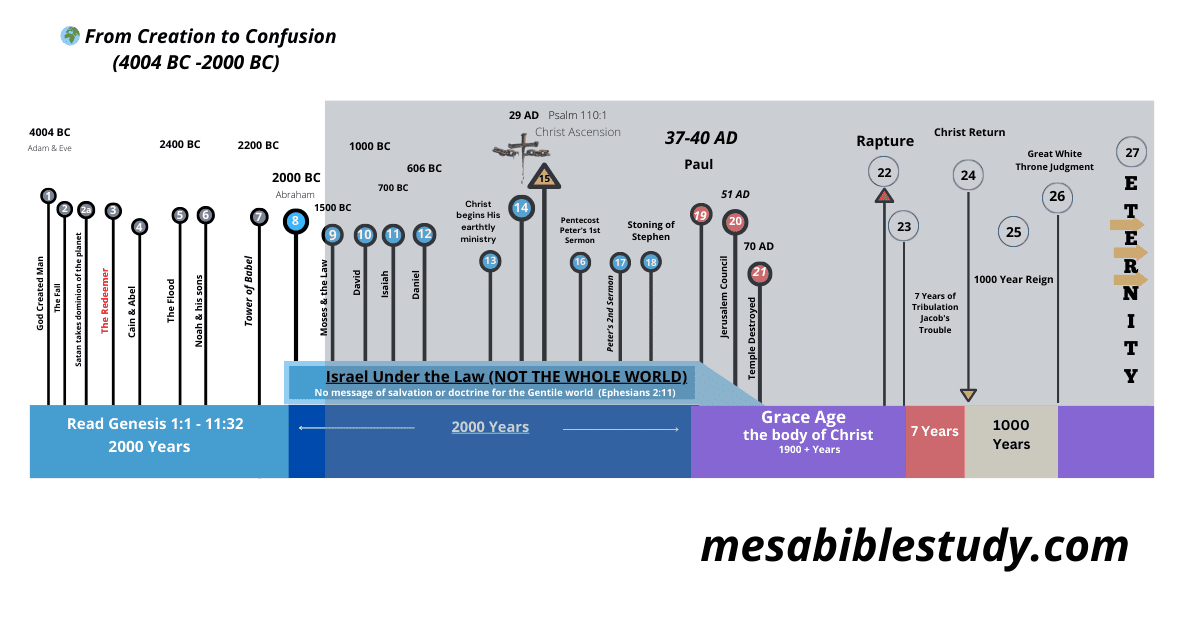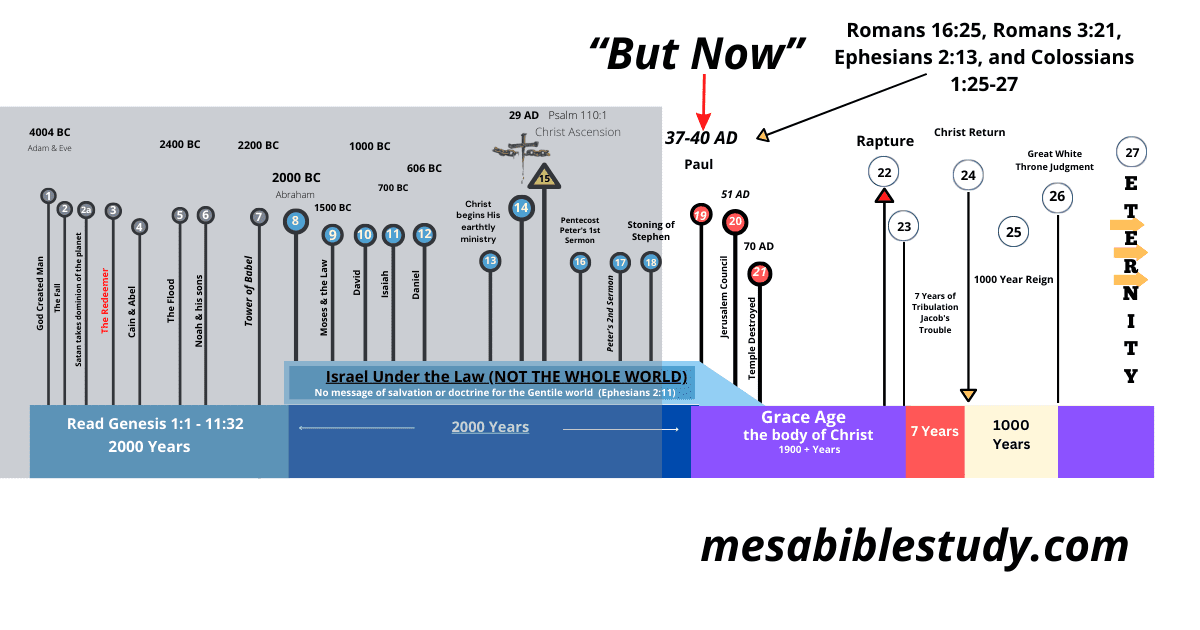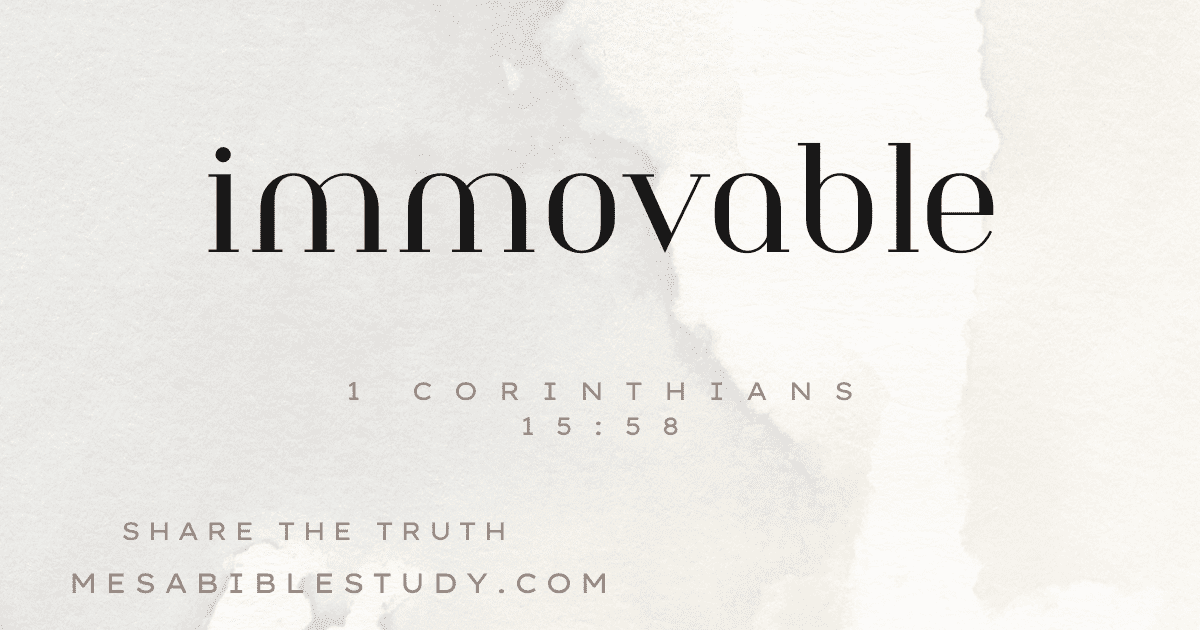In Romans 11:25, a chapter that reassures us of God’s continued plan for Israel, the Apostle Paul reveals a remarkable mystery. This mystery, hidden in the mind of God until revealed to the apostle Paul, carries profound significance for the body of Christ and…
Daily Encouragement
🌍 From Creation to Confusion (4004 BC -2000 BC)
📖 The Progressive Revelation in God’s Plan 🕰️ Understanding the Bible requires recognizing God’s sovereign hand in history. His unchanging character is our foundation, but His dealings with mankind have evolved throughout time. This is the essence…
The ‘But Now’ Moment: A Pivotal Shift in God’s Redemptive Plan
Introduction The Bible is a progressive revelation, unveiling God’s plan for humanity. In this progression, there is a moment that dramatically alters the course of human history. It’s a moment marked by two words: “But now.” These two…
God is Our Refuge from Everlasting to Everlasting
Psalm 90:2 says, “Before the mountains were brought forth, or ever You had formed the earth and the world, even from everlasting to everlasting, You are God.” In a world of constant change and uncertainty, there’s tremendous comfort in…
🌟 Stay Alert, Watch and Be the Light 🌟1 Thessalonians 5:6
In the midst of chaos and uncertainty, let’s anchor ourselves in the powerful truth of 1 Thessalonians 5:1-6: “But concerning the times and the seasons, brethren, you have no need that I should write to you. For you yourselves know perfectly that…
The Times of the Gentiles are Coming to an End ‘Luke 21:24’
Introduction In Romans 11:25, the apostle Paul sheds light on the mystery of God’s plan. He emphasizes that partial spiritual blindness has befallen Israel, but only until the fullness of the Gentiles has come in. This aligns perfectly with Luke 21:24,…
Start Every Day with a Heart Full of Praise!
Psalm 92:2 “To declare Your lovingkindness in the morning, and Your faithfulness every night.” Psalm 119:147 “I rise before dawn and cry for help; I have put my hope in Your word.” Psalm 118:24 “This is the day the Lord has made; we will…
🔥 Stay Steadfast – Immovable Amidst the Storms 🙏
In a world shrouded by wars, unrelenting turmoil, and ever-increasing opposition to God’s truth, we, as believers, are called to stand firm (IMMOVABLE) and unyielding. Trials and tribulations will no doubt confront us, but we are to remain anchored in our faith….
Biblical Prophecy: Israel’s End-Time Challenges and Triumphs
Rising Above the Storm: Israel’s Prophetic Journey to Victory The Bible is a progressive revelation, and a remarkable story unfolds—a prophecy that now echoes in our world’s headlines hourly. It’s a story of Israel, her enemies, and a destiny…
Amidst Chaos, Find Hope: God’s Plan Unfolds
In a world engulfed by chaos—wars and rumors of war, unprecedented moral decay, and unsettling events—know this: God is in control. As believers, we’re not witnessing the world falling apart; we’re watching it fall into place according to God’s…









